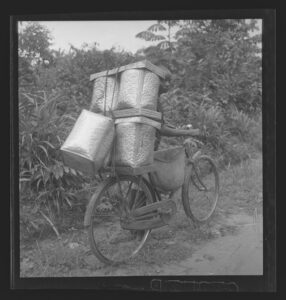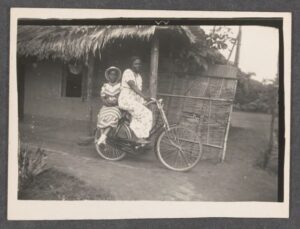
Aba, nestled in Nigeria’s oil-rich Niger Delta, thrives on its deep-rooted palm oil trade, significantly shaped by Christian missionaries like the Cookey brothers and the entrepreneurial Igbo community. Local Igbo cyclists transported barrels of palm oil from remote groves to vibrant urban markets. The British facilitated the importation of bicycles. This greatly maximized the extraction and export of palm oil in areas where trucks frequently got stuck in the flood-prone delta.
Local palm-oil traders fostered economic resilience and cultural vitality by founding bicycle unions and Isusu cooperatives. In Aba, bicycles are more than just a mode of transport; they are symbols of freedom and collaboration. They reflected a city driven by community and commerce, deeply rooted in its evangelical legacy.

While local cyclists managed intra-regional trade by navigating the challenging delta terrains, European traders, including Greeks, extended the palm oil trade from urban centers to the global north via rail and sea networks inaccessible to the locals.
In the Aba chapter of the Cycling Cities: The African Experience, Uche Ukonkwo analyzes and investigates this history to understand the difficulties in bringing back the rich cycling heritage of this Southeastern Nigerian city.